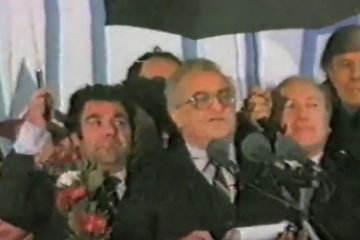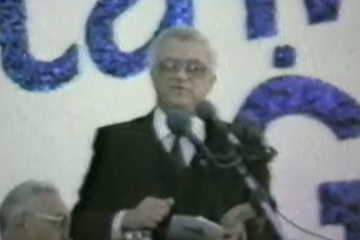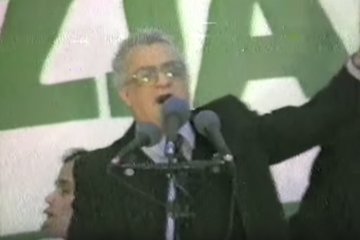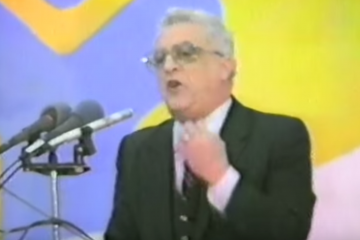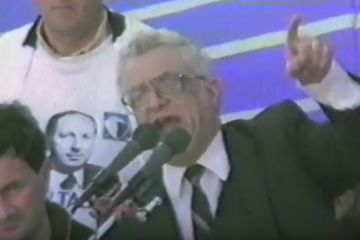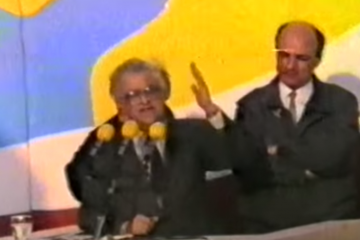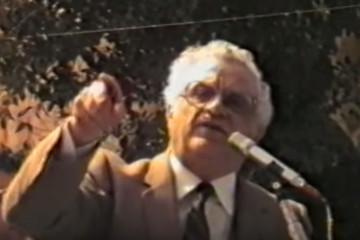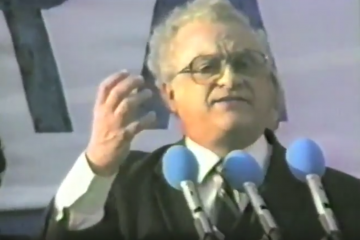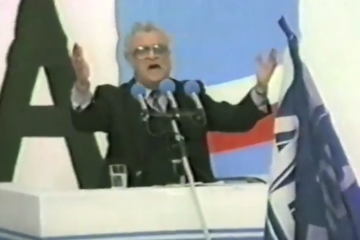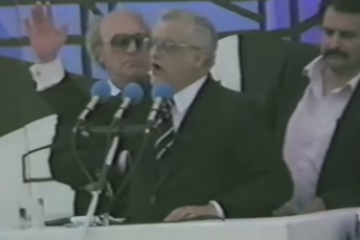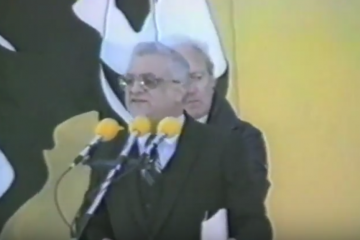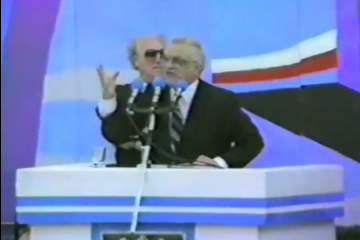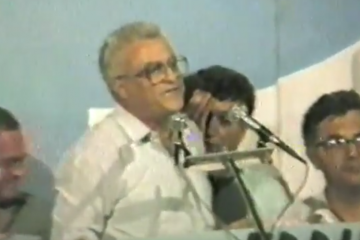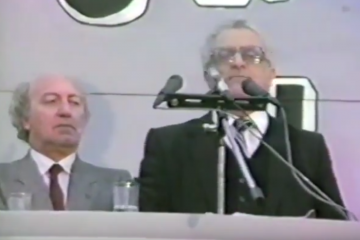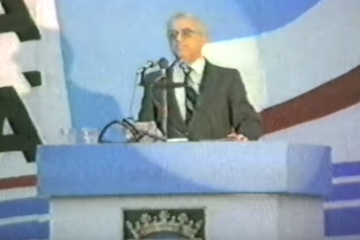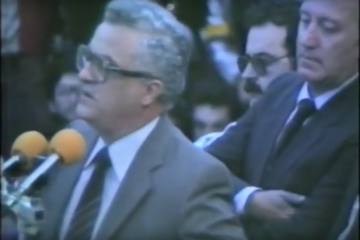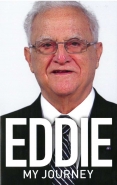As I conducted the 48 interviews with Eddie Fenech Adami that gradually metamorphosed into Eddie-My Journey – the autobiography he was hugely reluctant to publish – there was one phrase he repeated that resonated, with me at least, more brightly than any other: ‘Come what may.’
So indelibly were these words imprinted on my mind that I gave serious thought to proposing them as the title of the book. For better or worse I decided against, but still believe they contain the most accurate summation of his political life. Thy will be done, Eddie steadfastly believes, on earth, if perhaps not always as it is in heaven: the mass meeting at Tal-Barrani, which leading figures in his party were reluctant to take on until Eddie forged ahead… come what may; his definitive ‘Budget is Irrelevant’ speech made at a critical moment in Malta’s history after party-activist Raymond Caruana was killed in 1986, and Eddie ploughed on… come what may… even after Lorry Sant tore his script to shreds; Eddie’s relentless pursuit of European Union membership in spite of setback after setback and a crushing electoral defeat. He kept going… come what may.
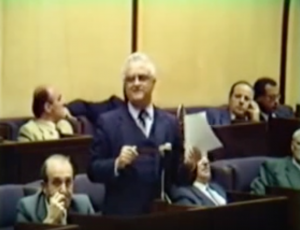
Eddie Fenech Adami: ‘An Irrelevant Budget’, 1986
The mantra has been no less relevant to his very existence. Few politicians have faced the serious health issues he endured as prime minister and opposition leader, yet Eddie doggedly battled through… come what may. This indomitable stoicism did not abandon him in retirement. Far from it. I recall him remarking quite casually, as I walked into his home one morning to conduct an interview for the book, that he had suffered a heart-related incident the previous day. My instant reaction was to head straight for the front door, but he was having none of it: “These things make me even more determined to carry on,” he said, and for the next hour I watched him wince as he struggled through.
Seeing him at close quarters also gave me an opportunity to reflect on another of his hallmark statements which I had hitherto not taken very seriously, or viewed rather cynically as political rhetoric: “I want to serve,” he had famously told Nationalist Party members shortly after being elected PN leader in 1977. Eddie had gone on to say, and reiterates retrospectively in the book, that his ambition in life was not to acquire a particular post but to do his duty to his country and those who placed their trust in him. A politician lacking political ambition? Perhaps that’s a bit of a stretch. But after spending time in his company, and coldly analysing his actions at various points in his life, I reached the inexorable conclusion that he was actually telling the truth. He fitted into a plan, rather than originating it himself, with ‘Tell me what I have to do today’ being his guiding light. Very biblical. Very Jesuit. Very him. Unlike former Labour prime minister Dom Mintoff, Eddie is no enigma. The only paradox in his character is the juxtaposition of his public and private persona. Otherwise what you see is very much what you get: a man very comfortable in his own skin.
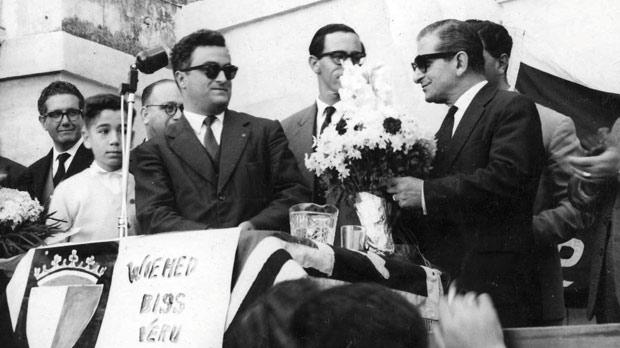
Eddie Fenech Adami addressing a mass meeting with George Borg Olivier in Birkirkara in 1961
Understanding his sense of duty is fundamental to understanding this quiet, deceptively perceptive politician who is unlikely to hurl a word in your direction unless you speak to him first. Eddie was in politics because he wanted to preserve the values he believed in, sometimes infuriatingly so, and because he was determined to bring about change where he believed some of those values did not exist. He wanted to secure democracy in Malta when it was under threat, and led the long march into the European Union when every conceivable obstacle was in his way. He was convinced this was the island’s destiny, and probably his too. So much so that when he finally reached the promised land he immediately exited the political stage, leaving the implementation of his lasting legacy to others.
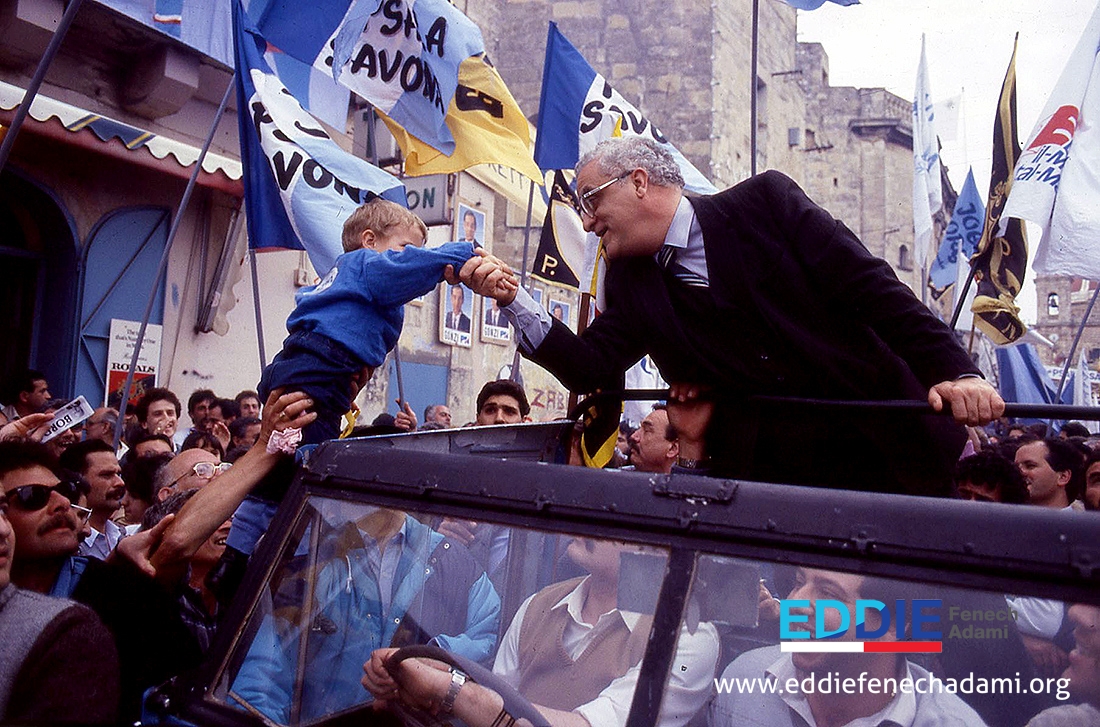
A tender moment during the 1987 electoral campaign
His departure from politics likely marked a watershed. Yes, his achievements will live long in the memory, but any nostalgia is slightly tinged by the notion that Eddie could end up being Malta’s last mainstream conviction politician. At least for now. Today’s political leaders may echo several of the sentiments he forcefully expressed, but are they doing so merely to secure a broader voter base? ‘Come what may’ does not seem to form part of a vocabulary where calculation and opinion polls rule the roost. Perhaps this should come as no surprise. For politics today is not so much a duty, not so much a call… but much more of a job than it was in Eddie’s day. Granted, a job where the lead players can do good, or harm if that is their wont, but, with ideological politics seemingly going the way of the Dodo, it’s a job without a big picture in sight. Despite being a realist, Eddie would probably purse his lips at such a predicament. But, rather ironically, it is his achievements, and those of people like him around the world, that have brought it about.

